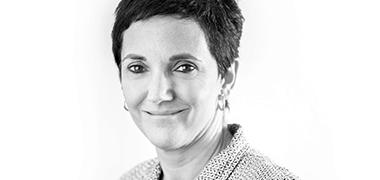We are celebrating the 10-year anniversary of Debats d’Educació by giving the educational community the opportunity to air its views

I am the mother of four children and that has given me a lot of experience, from the inside looking out, in family-school relations at different education levels. Now, as an anthropologist and the director of the Jaume Bofill Foundation project “Families with a Voice”, I am taking a look at this journey from a professional and critical perspective that is complemented with my impression from my experience: gratitude to the teachers that open up the doors for us and invite us to participate.
Plus, I have also been working as a specialist for the Barcelona Education Consortium for six years. Before that, I had done research in the fields of migration, intercultural education and at-risk adolescents.
The three things I’ve learned
All mothers and fathers CAN make valuable contributions to the school
Each family is the result of a particular biography, of a sum of daily relationships, places, training and occupational plans, education models and expectations for the children which are projected on the school.
Most schools know that these very diverse “human resources” make for a valuable tool that can enrich the work of the teachers. They know that if they recognise this natural capacity mothers and fathers have to be interested in their children's education and get involved, they will exponentially multiply their educational capacity.
We only have to be careful when it comes to creating this exchange: the schools must be careful when inviting mothers and fathers to participate, each with their own availability, to recognise and respect their strengths and individual codes. Families must recognise and respect the codes that organise education, the work of the teachers and the fundamental role they play with the children.
Wherever this formula has been applied, a sum has been achieved where all of the parties have come out on top. There are many examples of this!
The three legs that support good results: good professionals, good peers and good family guidance
Unlike the right to healthcare, which is guaranteed with good healthcare services and good professionals, education is basically a social phenomenon. That’s why “the peer effect” or “family backpack” effect can unravel all of the work of excellent professionals.
That’s why we must continue fighting to achieve a non-segregated education system where the classrooms are uniform enough to create a rich breeding ground for learning.
An education system where family diversity is compensated with school support and where mothers and fathers can get assistance to equip all students with opportunities. We must remember that, because of the crisis, more and more educational services have to be financed by families and, this, when half of all Catalan families are experiencing difficulties making ends meet.
We must stop creating policies for families and begin inviting families to create policies
Thousands of mothers and fathers have turned schools into a place to exercise citizenship: 97% of all schools in Catalonia in the 2012-2013 school year had a parents’ association covering on average 80% of the families at the schools.
Moreover, parents’ associations ensure basic services like those aimed at work/family balance (school lunches, early morning care, extracurricular activities), those that facilitate equal opportunities because they make the costs cheaper (the sale or re-use of books, digital licenses) and those aimed at school improvements (maintenance, equipment, library services).
Thus, parents’ associations have become civil society’s way to take co-responsibility for the quality of education. The coming of age of the family movement in education should be acknowledged by ending the creation of policies for families and beginning to create policies alongside families.
With families that can legitimately offer opinions and decide on issues that affect both the financing of education, calendars, aid and entrance requirements.














 The texts published on this website are, unless otherwise indicated, covered by the Creative Commons Spain Attribution 3.0 licence. You may copy, distribute, transmit and adapt the work, provided you attribute it (authorship, journal name, publisher) in the manner specified by the author(s) or licensor(s). The full text of the licence can be consulted here:
The texts published on this website are, unless otherwise indicated, covered by the Creative Commons Spain Attribution 3.0 licence. You may copy, distribute, transmit and adapt the work, provided you attribute it (authorship, journal name, publisher) in the manner specified by the author(s) or licensor(s). The full text of the licence can be consulted here: